In October this year, legislation came into force which imposes additional obligations on those serving on the boards of housing cooperatives.
On 31 October 2021, an amendment to the Act on Prevention of Money Laundering and Financing of Terrorism comes into force. Among other things, the Act regulates the operation of the Central Register of Beneficial Owners (CRBR). This is a system that collects and processes information on beneficial owners, i.e. natural persons exercising direct or indirect control over companies and other entities.
Until now, the obligation to make notifications to the CRBR concerned primarily commercial law companies. Pursuant to the Law on amending the Law on Anti-Money Laundering and Financing of Terrorism and certain other laws of 30 March 2021 (Journal of Laws of 2021, item 815), the circle of entities obliged to make a notification to the Register of Beneficial Owners has been expanded to include, among others, cooperatives and European cooperatives. These entities are obliged to make a notification to the Central Register of BeneficialOwnerswithin 3 months from the date of entry into force of the amendment, i.e. from 31 October 2021.
The notification to the CRBR is made by a person authorised to represent a given entity (in practice it will be the management board of a cooperative). It shall be made free of charge by means of electronic communication. The notification shall be submitted in the form of an electronic document in accordance with the template made available by the minister competent for public finance. The notification should be made via the website: https://www.podatki.gov.pl/crbr/. The notification should bear a qualified electronic signature or a signature confirmed by the trusted ePUAP profile and contain a statement of the person making the notification to the Register on the veracity of the information reported to the Register.
The Act contains a very extensive definition of a beneficial owner. In order to simplify, it should be indicated that it is a natural person who directly or indirectly controls a given entity and who has an actual or legal possibility to exert a decisive influence on this entity. In the case of cooperatives, members of the management board should be regarded as such persons.
Failure to comply with the obligation to notify the CRBR may result in a fine of up to PLN 1,000,000 being imposed on persons responsible for its implementation.
The second significant change, which came into force on 5 October 2021, is related to the amendment of the Act on electronic delivery (Journal of Laws of 2020, item 2320). By the above-mentioned Act, the legislator amended the content of Article 16 of the Cooperative Law, giving it the following new wording:
§ 1. The condition for admission as a member is the submission of a declaration. The declaration should be submitted in writing recorded in paper or electronic form. The letters recorded in electronic form shall be sent to the electronic delivery address of the cooperative as referred to in Article 2 item 1 of the Act of 18 November 2020 on Electronic Delivery (Journal of Laws, item 2320) and shall bear a qualified electronic signature, a personal signature or a trusted signature. A letter fixed in paper form shall bear a handwritten signature. The declaration signed by the acceding member should contain his/her name and place of residence, and if the acceding member is a legal person – its name and seat, the number of declared shares, data concerning contributions, if the statutes provide for their payment, as well as electronic delivery address referred to in Art. 2 item 1 of the Act of 18 November 2020 on electronic delivery, entered in the database of electronic addresses referred to in Art. 25 of that Act, if the acceding member has such, and other data provided for in the statutes.
§ 2. If the cooperative is at the same time an obliged institution within the meaning of the Act of 1 March 2018 on the prevention of money laundering and terrorist financing (Journal of Laws of 2020, item 971, 875, 1086 and 2320), the declaration referred to in § 1 may also be submitted under nullity in documentary form within the meaning of Article 77(2) of the Civil Code. In such a case, the provisions of the Act referred to in the first sentence shall apply to the identification and verification of the identity of the person who seeks admission as a member.
The amendment of Article 16 of the Cooperative Law consists in enabling the submission of a membership declaration in writing recorded in paper or electronic form. The changes, coming into force as of 5 October 2021, correspond with the obligation to have an address for electronic delivery entered in the so-called electronic address database, linked to a public registered electronic delivery service or a qualified registered electronic delivery service imposed on cooperatives in Article 9(1)(8) of the Electronic Delivery Act. According to this provision, each entity entered in the Register of Entrepreneurs of the National Court Register (i.e. also housing cooperatives) is obliged to have an address for electronic delivery entered in the database of electronic addresses, connected to the public registered electronic delivery service or a qualified service of registered electronic delivery.
The amended provisions allow members of housing cooperatives to submit membership declarations in electronic form (this possibility applies to persons acquiring membership on the basis of a declaration – i.e. persons acquiring separate ownership of premises and tenants of cooperative premises) by sending them electronically to the cooperative’s e-mail address. However, in order to be able to fulfil the above obligation it is not sufficient to have a regular e-mail address. It will be necessary to use a special e-delivery application that will allow sending and receiving electronic correspondence being the equivalent of registered mail (registered or with return receipt).
In order to create a public address, it will be necessary to submit a relevant application to the minister competent for informatisation. Once the e-mail address has been entered into the database of electronic addresses, it will be possible to receive membership declarations submitted electronically.


